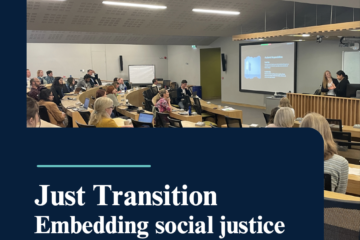Spatial justice as a prerequisite for a just transition in rural areas? The case study from the Irish peatlands
2023, published in EPC: Politics and Space, Vol. 0(0) 1–17
Banerjee, A., & Schuitema, G.
https://doi-org.ucd.idm.oclc.org/10.1177/23996544231173210
Abstract: Energy production from fossil fuels is gradually phased out as many countries aim to transition to a low-carbon society. As society and technology are intertwined, phasing out fossil fuels impacts people and communities. Especially those who heavily rely on the fossil fuel industry will be worse off. Therefore, calls are being made for ajust transitionthat ensures the rehabilitation of workers, regions, and communities negatively affected by fossil fuel industry closures. We argue that spatial justice can help inform just transition’s theoretical and practical aspects. Therefore, a spatial justice approach should be a prerequisite for a just transition. The concept of spatial justice is intertwined with the social justice principles of procedural, distributive, and restorative justice, which are central to the current conceptual understanding of just transition. We use the case of the closure of peat-based electricity production in rural Ireland to demonstrate how a spatial justice approach can underpin a just transition and how it can help with practicalities like identifying and addressing the issues and concerns in local communities. To ensure a just transition, a spatial justice approach is needed to identify and address the deeper problems affecting the resiliency of rural and mono-industrial regions dependent on fossil fuels.



0 Comments